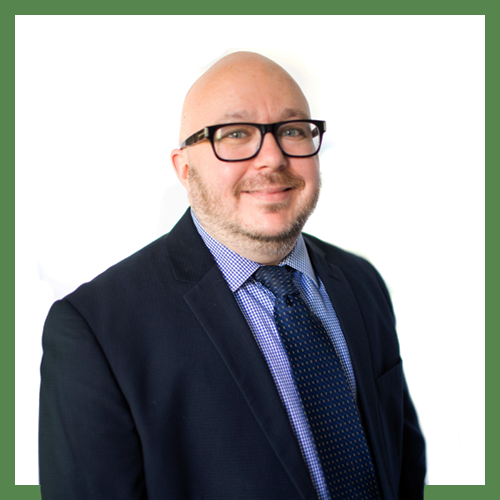COLE THALER | October 20, 2021
Income is not the only predictor of poverty.
I can often tell that someone is stuck in the cycle of poverty without asking for their household income. All I need is their first and last name.
I type their name into the Fulton County’s online court record search, and the screen fills up with line after line of entries:
- Five eviction cases filed over the past eight years.
- Three collections actions filed by two credit card companies and a car loan company.
- Two garnishments.

The harms caused by the poverty docket are long-lasting.
This is the poverty docket, and it is part of the lasting imprint that poverty leaves on a person’s life.
Court records are public records, easily (and commonly) searched by prospective landlords and even potential employers. Lawyers like me can search these records, as can any curious person. And court records are public forever: they don’t disappear after a certain number of years, and in most cases cannot be sealed or erased.
The harms caused by the poverty docket are long-lasting. Many AVLF clients report that finding new rental housing is impossible when they have been evicted in the past. Money judgments can affect credit scores, making it more expensive to purchase a car or otherwise obtain credit.

Adults in poverty are three times more likely to be arrested than those who are not in poverty.
Sometimes the poverty docket includes a bankruptcy filing – a type of legal action that wipes some debts away, but causes other problems, like poor credit.
And often the poverty docket includes criminal charges and convictions. The criminal justice system’s disproportionate involvement of poor people has gotten more media attention lately, for good reason: Adults in poverty are three times more likely to be arrested than those who are not in poverty. Actions associated with homelessness – like sleeping outside, loitering, and panhandling – can lead to arrests and criminal charges. The money bail system makes it more difficult for low-income people to get out of jail and back to work after they are arrested. And municipalities increasingly add steep fees and fines to criminal punishments, making it harder for those in poverty to meet the terms of their sentences … increasing the risk of re-arrest.
(Notably, one legal action that almost never appears in a court record search of a poor person’s name is an appeal of an eviction case they lost. That’s because, as of 2006, Georgia requires tenants to pay all of the money the trial court awarded their landlord, in full and within seven days, as a condition of filing an appeal.)

The traumatic impacts of poverty are all-encompassing. Its effects show up in its victims’ mental health and physical health – even in their life expectancy.
The poverty docket can be startling to the uninitiated. Sometimes I get calls from AVLF volunteer attorneys who are taken aback to discover their client’s name on numerous eviction filings from the past few years. I explain to them that Georgia landlords often use evictions as rent collection tools.
The traumatic impacts of poverty are all-encompassing. Its effects show up in its victims’ mental health and physical health – even in their life expectancy. And its stain can be found in court records, as indelible as a judge’s signature.
Help us secure safe and stable homes for our clients by donating today.

Cole Thaler
Co-Director, Safe & Stable Homes Project
Check out more from this author.
Cole serves as the co-director of AVLF’s Safe and Stable Homes Project. He supervises the Saturday Lawyer Program and the Eviction Defense Program.
Cole grew up in the upper-middle-class area of Bergen County, New Jersey, but his family struggled financially. In 1993, when Cole was sixteen years old, the bank foreclosed on the house he grew up in, and Cole and his family had to move to another town. Cole attended Williams College, where he worked in the dining hall for four years, serving food to and cleaning up after his wealthier classmates. During those years, Cole grew troubled by the stark class differences around him. After graduating magna cum laude from Williams, Cole worked in food service, in a vet’s office, and for a lawyer before deciding to apply to law school.
At Northeastern University School of Law, Cole was an active member of the LGBTQ community in Boston and on campus. Spurred by his experiences and observations of inequality and injustice, Cole decided to use his law degree to protect society’s most vulnerable. From 2005 until 2009, Cole worked for Lambda Legal, helping transgender people across the country stand up for their rights in court. After that, Cole followed his heart to serve people living in poverty – first in a rural setting through Georgia Legal Services Program, and, since 2014, in Atlanta through his work at AVLF.
Cole believes that knowledge is power; that small acts of kindness make a big difference; and that we must strive for our vision of liberation, even when it feels unattainable. He shares his home with his husband and a friendly pack of rescue dogs and cats.